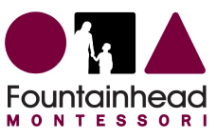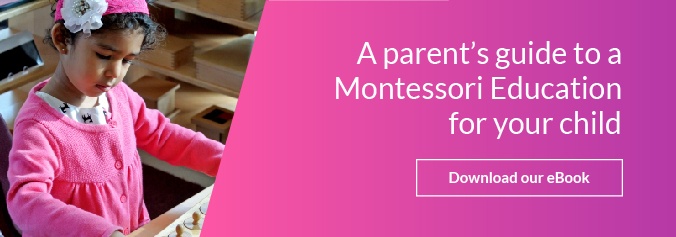There are many stories out there about young children coming home with hours of homework every night. Parents often question the value of sending home so much work with elementary-aged children and ask: Is excessive homework an essential element to an academically demanding program? Does nightly homework improve the long-term academic success of students? Is homework more important to long-term success than being involved with family activities inside the home? The Montessori philosophy of education posits that learning happens both inside and outside of the classroom. And, learning happens most effectively when it is hands-on. These beliefs leave no room for busywork that is characteristic of most traditional ‘homework.’ Instead, the homework that is part of Montessori education is assigned sparingly and with intention.
Homework for pre-kindergarten and kindergarten aged children
You will not find a folder full of worksheets for your pre-school or kindergarten-aged child to complete at home if he or she is in a Montessori program. In Montessori education, one of the most important elements of educating young children is getting them involved in activities of daily living. In the classroom this means students practice skills such as handwashing, sweeping, cleaning up after themselves, and assisting others. The daily and nightly activities that occur in the home provide numerous opportunities for children to practice these types of skills. Parents can support the learning that happens in the Montessori classroom by allowing students to be involved in the activities of practical life that happen at home. Practical life skills are the type of homework you can expect for pre-kindergarten and kindergarten aged children in a Montessori program. The parent library of Fountainhead Montessori has a helpful list of activities of daily life that students can do at home.
Homework for elementary-aged children
In an elementary Montessori program, there will be some homework but, as with the pre-school and kindergarten programs, the homework is intentionally designed. The overarching belief about homework in the Montessori philosophy is that schoolwork should be done at school. Homelife provides students with important opportunities for learning that should not be pushed out with piles of homework. Examples of the work that elementary-aged children are expected to do at home include completing a daily reading log, studying weekly spelling lists, and compiling a monthly book share report. Beyond these tasks, all other ‘homework’ is completed at school. This design provides families with the flexibility to spend time together and get involved in other types of enriching activities.
The philosophy of Montessori education does not put a high value on homework. The design of the Montessori classroom and curriculum allows for maximum learning in class so students can have as much family time as possible once the school day is over. You can learn more about how homework is viewed in Montessori education by reading some of the resources in the FMS parent library.












Let us know what you think about this post
Put your Comment Below: